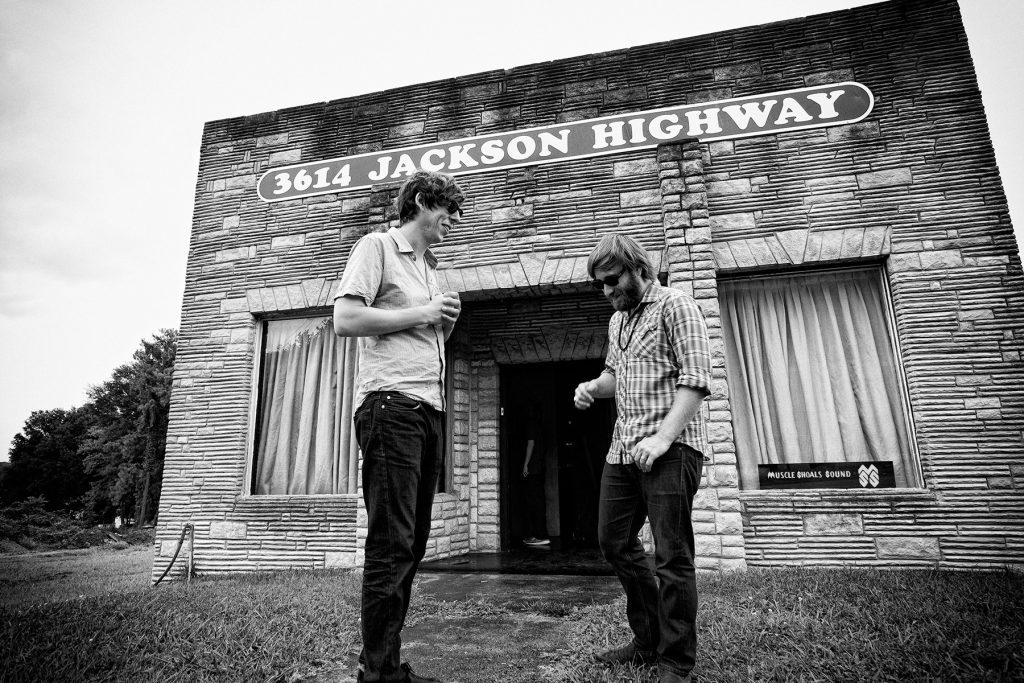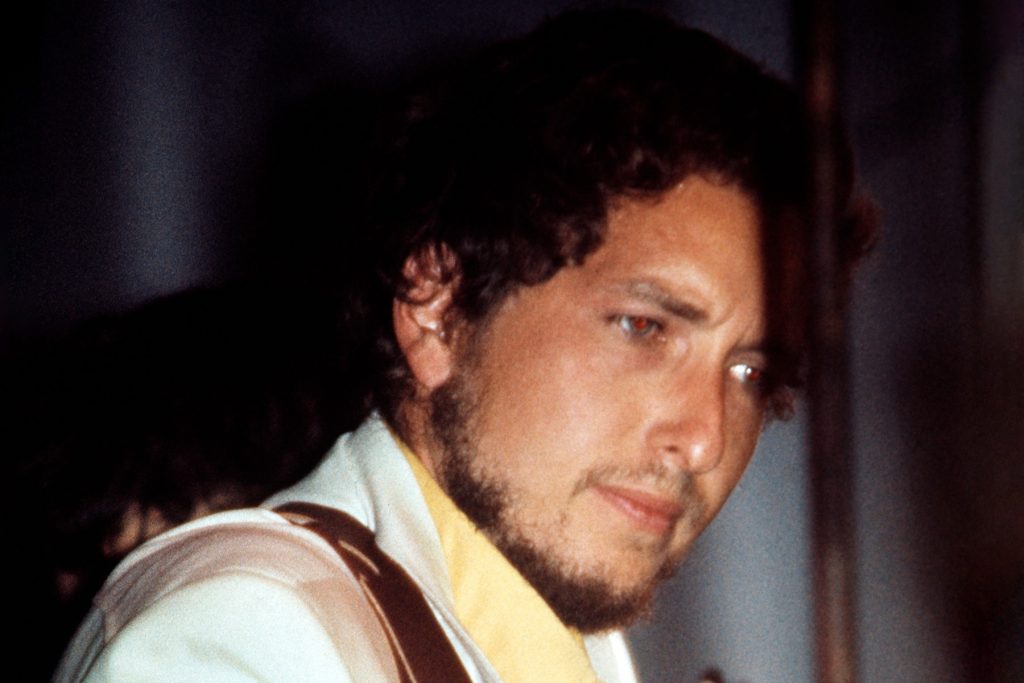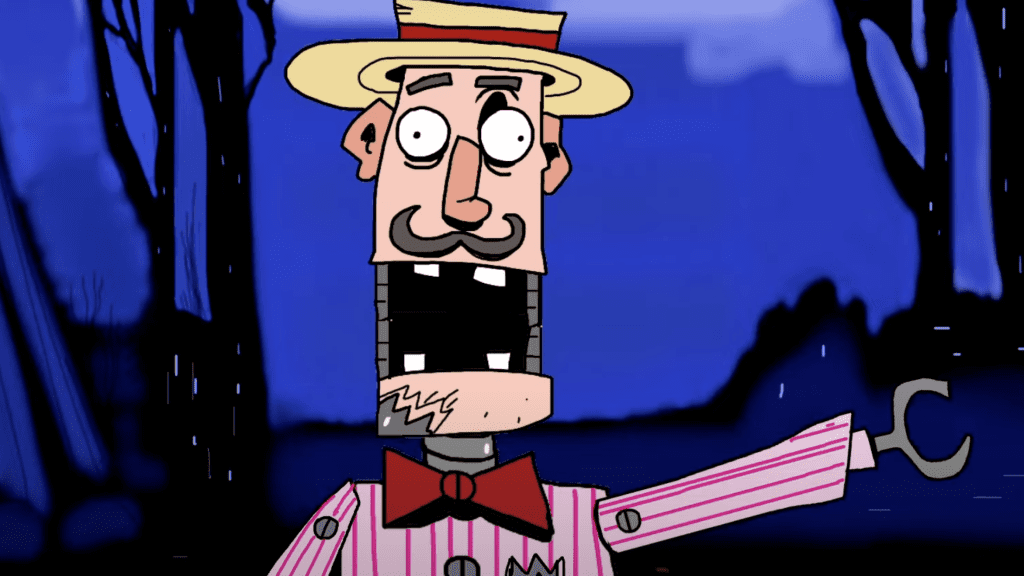
The Black Keys Reflect on a Decade of ‘Brothers’
When IndieLand joined the Black Keys on the road in 2010, the band was facing a problem. To promote their single “Next Girl,” their label had commissioned a video featuring a dinosaur puppet singing the track surrounded by women in bikinis — and the band wasn’t into it. “There’s a fucking dinosaur singing my lyrics!” guitarist-singer Dan Auerbach said after watching the video on their tour bus. “It’s not funny, and I really don’t like it … They’re fucking with our art, man.”
“It’s called promotion,” drummer Patrick Carney said. “It’s the first time Warner has ever spent money on us. You shouldn’t be complaining.”
Today, when he’s reminded of that debate, Auerbach laughs. “It was the first time any of the big labels ever gave a shit about us,” he says. “If we ever wanted to do a video, we had to figure out what it was going to be about. And these guys just did this and sent it to us, so we hated it extra.”
Brothers marked a key transition point for the Keys, where the Akron duo graduated from Rust Belt road warriors to unlikely superstars. The 2010 album –– which was packed with deep grooves and “almost spookily timeless pop songs that captured the dusty vibe of the soul-sampling RZA productions they loved,” as Brian Hiatt wrote at the time — propelled them to uncharted territory for a rock band in the 2010s. Their whistling soul single “Tighten Up” cracked the Hot 100, and earned them a Grammy and a Video Music Award (though when the band received the statue, it was mislabeled to the Black Eyed Peas). Their songs appeared in countless commercials and they started playing arenas.
blogherads.adq.push(function () {
blogherads
.defineSlot( ‘medrec’, ‘gpt-dsk-tab-article-inbody1-uid0’ )
.setTargeting( ‘pos’, [“mid-article”,”mid”,”in-article1″,”mid-article1″] )
.setSubAdUnitPath(“music//article//inbody1”)
.addSize([[300,250],[620,350],[2,2],[3,3],[2,4],[4,2]])
;
});
A decade later, the Keys are marking Brothers’ tenth anniversary with a remastered edition of the LP. It contains three bonus tracks, including “Black Mud II,” an alternate of their psychedelic instrumental; “Chop and Change”; and “Keep My Name Outta Your Mouth” The box set is available on CD and vinyl with a 60-page book with photos from the archives and liner notes written by David Fricke.
Carney has listened to Brothers a lot over the years. He plays it whenever he’s testing the speakers in his home studio, “because I’m so familiar with a couple of the songs sonically,” he says, speaking from his new home in South Carolina, where he’s been spending lockdown with wife Michelle Branch and their two-year-old son, Rhys. Whenever he hears the album, he’s reminded of the stakes: “There was a lot fucking hanging on that record,” he says. “I had just gotten divorced. Dan had just had a kid. There was just a lot of shit happening. I knew we had a lot hanging on it, so when I listen back I’m constantly reminded. I can’t believe how much it resonated with people, and it really did completely change our lives.”
It almost didn’t happen. By 2008, the Keys had already achieved more success than they’d ever imagined. That year, they released their fifth album, Attack and Release, produced by Danger Mouse, which proved they had an ability to craft huge hooks, with tracks like “I Got Mine” and “Strange Times.” But the band was also getting tired of the grind. “If you keep doing the same thing, you start losing your minds,” says Carney. “Eight years of being in a band touring in a van … it feels a lot longer. The Ramones never made it to the bus. They were touring actively for, like, 21 years. How intense that must have been for those guys. And [most of them] were dead within five or six years of the band stopping. They were sitting in a van for eight hours a day, eating junk food and shit. That’s probably what it was.”
blogherads.adq.push(function () {
blogherads
.defineSlot( ‘medrec’, ‘gpt-dsk-tab-article-inbody2-uid1’ )
.setTargeting( ‘pos’, [“mid-article2″,”mid”,”in-article2″,”mid-article”] )
.setSubAdUnitPath(“music//article//inbody2”)
.addSize([[300,250],[300,251],[620,350],[2,4],[4,2],[3,3]])
;
});
During a break from the road in 2009, Carney and Auerbach went in separate directions. Auerbach recorded his first solo album, Keep it Hid — and he didn’t tell Carney about it. “I wasn’t even sure he wanted to do the band anymore,” says Carney. “Sometimes, we’re not the best at communicating with each other … Especially at the time, Dan was very anti-confrontational. I don’t even know if that’s a word. But sometimes he’s not the best at expressing himself. So I really didn’t know what was going on. I’m the opposite, where I really express myself.”
“It was a real thing, sort of,” Auerbach says of the tension between him and Carney back then. “Once you get husbands and wives involved, things can change, you know. Things get more difficult.”

Dan Auerbach
John Peets*
Carney started a band of his own around the same time, called Drummer. After working out their conflict, he and Auerbach turned to a different kind of project: Blacroc, where they backed up rappers like Mos Def, RZA, and Raekwon on a series of hazy instrumentals. “I think at that point, Dan wasn’t really writing verses, but these choruses and focusing on the groove,” Carney says. “I think that kind of played into what we did when we went to Muscle Shoals.”
Auerbach, meanwhile, was on a journey of discovery. “We were listening to a lot of soul music, and so much of the great soul music is really hooky songs,” says Auerbach. “We were listening to that Lee Fields My World record, we loved that. We were listening to lots of stuff cut in Muscle Shoals. Lots of stuff cut in Memphis at Hi [Records]. Willie Mitchell productions, and then a lot of 45s. Theres’ a compilation called Chains and Black Exhaust. It’s all black funk and 45 compilations that some crate-diggers did. I bought it at Shangri-La Records in Memphis, and that was a huge influence, the whole year before Brothers.”
“I wasn’t even sure he wanted to do the band anymore,” says Carney. “Sometimes, we’re not the best at communicating with each other.”
The band started working on Brothers at Auerbach’s basement in Akron. With nothing more than a notebook of lyrics to pull from, they made up the songs on the spot, resulting in early tracks like “She’s Long Gone,” with Auerbach playing a thunderous dual-octave riff while Carney bashes away on the toms. “Pat reminded me that that was a first take of a demo we cut at my house,” Auerbach says. “We tried to cut it at Muscle Shoals, but we ended up going with the demo.” That same day, they also recorded “Black Mud,” an organ-steeped funk instrumental that had Auerbach unleashing wah-wah fury over a simmering funk riff. “We just liked it so much, we threw it on there,” says Auerbach. “I don’t know that it made sense to have an instrumental. It was just this little magic moment where the guitar is humming just right. The amps, everything sounds right, you can feel it breathing when you’re recording — that’s really what you want.” The version of the instrumental on the new reissue is even more experimental, with tremolo guitars and a blues arrangement.
Next, the band headed to Muscle Shoals Sound Studio in Sheffield, Alabama, where the Stones, R.B. Greaves, Aretha Franklin, Etta James, and more had made peak recordings in the late 1960s and early ’70s. But the studio wasn’t in great shape anymore: As Fricke wrote, “The iconic sign with the street address — immortalized on the cover of a 1969 LP by Cher, one of the first albums made on the premises — was still over the front door. Inside, Muscle Shoals was rich in memories — the AM-radio dynamite and landmark albums created there in the 1970s, steeped in Southern blues, soul and country-funk — but not much else.”
blogherads.adq.push(function () {
blogherads
.defineSlot( ‘medrec’, ‘gpt-dsk-tab-inbodyX-uid2’ )
.setTargeting( ‘pos’, [“mid”,”mid-articleX”,”in-articleX”,”mid-article”] )
.setSubAdUnitPath(“music//article//inbodyX”)
.addSize([[300,250],[300,251],[3,3],[620,350]])
.setLazyLoadMultiplier(2)
;
});
“It was all part of the experience,” says Auerbach. “It was nothing like it was in its heyday. It was more like our basement than anything. Honestly, it was very Black Keys. It’s like a little taste of Akron in Muscle Shoals.”
Still, the band discovered magic in the limitations. Auerbach brought only his cheap Harmony guitar and a Telecaster, and began most songs playing producer Mark Neil’s Rickenbacker bass. Neil also shipped in a Gretsch drum kit that Auerbach found “very inspirational.” “That was the first time Pat and I had a really nice, well maintained drum kit,” he says. “We never experienced that, and Pat, who is just so natural and musical, was given that tool and he just shined on it.”
The band dove in with the soulful “The Only One,” Auerbach singing in a falsetto about a love that “disappears when I get near.” “Pat said that that was one of the first ones we cut at Muscle Shoals — a falsetto song, which I couldn’t believe,” says Auerbach. “We just right out of the box started doing falsetto songs.” From there, they worked quickly. Carney says the thunderous stomper “Howlin for You” was “probably the first take of when I finally got through the song without fucking the drums up.”

Patrick Carney
John Peets*
The lyrics mostly dealt with relationship turmoil. Just days before entering the studio, Carney had filed for divorce. While Auerbach said the songs were not written about his bandmate’s life, Michael Carney — Patrick’s brother, who does the band’s artwork — observed: “I think Dan wrote the songs from his own experience. But I think he wrote them for Pat.”
Auerbach laughs at that idea today: “I, to be honest, really don’t even know. I can’t even remember. It was all a blur. I mean, we recorded them so fast, and we were improvising so much of it. We didn’t obsess over them.”
blogherads.adq.push(function () {
blogherads
.defineSlot( ‘medrec’, ‘gpt-dsk-tab-inbodyX-uid3’ )
.setTargeting( ‘pos’, [“mid”,”mid-articleX”,”in-articleX”,”mid-article”] )
.setSubAdUnitPath(“music//article//inbodyX”)
.addSize([[300,250],[300,251],[3,3],[620,350]])
.setLazyLoadMultiplier(2)
;
});
The band recorded the majority of Brothers in less than two weeks. But after heading home to work on the mixes, they decided to try to write one more song. While in New York promoting the Blackroc album, they met up again with their past collaborator Danger Mouse. The result was their biggest commercial hit, “Tighten Up.” “It started with me trying to play a Krautrock type of beat, like Can’s ‘Vitamin C,’” Carney said in 2018. “Then we started throwing a whole bunch of shit at the wall. That track really should have been credited as a co-write with Brian Burton, a.k.a. Danger Mouse, but we were so naive that we were like, ‘Oh, that’s just what a producer does in the studio.’ The entire arrangement, the thought of what should happen in the track was Brian.”
“Tighten Up” went on to win the band a Grammy and become a Number One rock hit. Auerbach likes that it sounds different from the other songs on Brothers: “I feel like more people heard a song like ‘Howlin’ For You’ than ever would’ve if we didn’t have ‘Tighten Up,’” he says.
Carney says the Keys made a conscious commercial push once they realized the album they had on their hands. “We made everyone that was working with us know that if it didn’t work, we might not work anymore,” says Carney. “It was getting all hands on deck to make sure the record got heard. We’d never gotten a push at radio. Those were things we asked for.” It worked: Today, the dinosaur-starring video for “Next Girl” has earned more than 21 million views.
“In a way, that record coming out when I was 30 basically delayed me growing up another six, seven years,” Carney observes. “I became 23 when that record came out, and I delayed adult responsibilities until I was in my late thirties.”
Like everyone else, the Black Keys had a much different 2020 planned, with a summer tour that would have promoted Let’s Rock, their first album in five years. “We had a beautiful tour booked: Yola, Marcus King, and Early James were gonna come on the road with us,” says Auerbach. “It was gonna be amazing.” Auerbach has no idea when the band will be able to tour again, but he says there’s work to do in the meantime: “We’ll probably get in the studio again together and work on something before then.”




